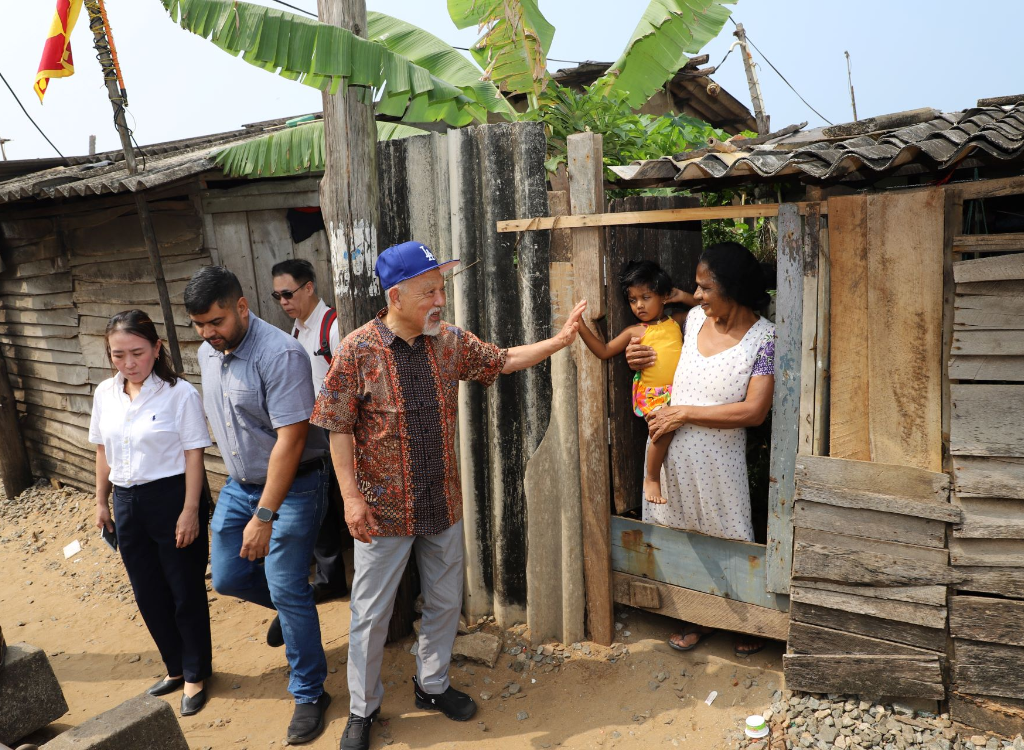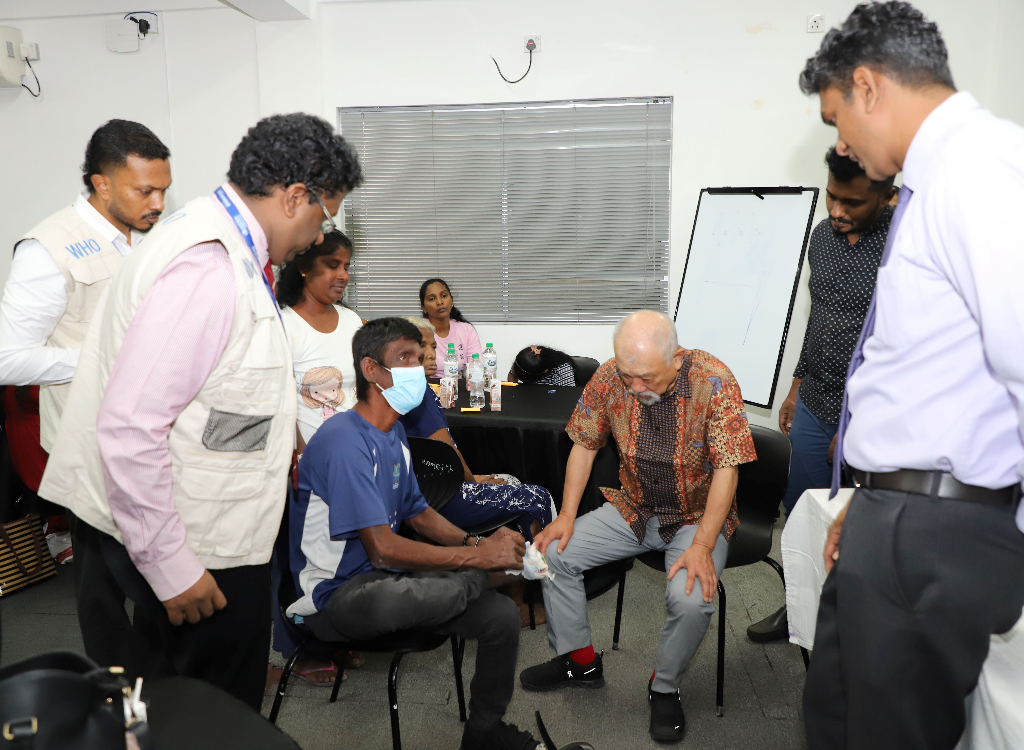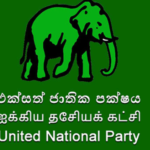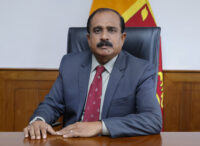The World Health Organization (WHO) Goodwill Ambassador for Leprosy Elimination and Chairman of The Nippon Foundation, Mr Yohei Sasakawa, arrived in Sri Lanka recently for a five-day visit to support the country’s ongoing efforts to eliminate leprosy.
As a global advocate for leprosy elimination, Mr Sasakawa dedicates one-third of his time annually to visiting countries where leprosy remains a public health challenge. His visit to Sri Lanka reflects his commitment to firsthand engagement with Sri Lanka’s Ministry of Health, affected communities, and policymakers to strengthen collaborative efforts to tackle the disease.
During his visit, Mr Sasakawa participated in several field visits and high-level discussions aimed at strengthening Sri Lanka’s leprosy control strategies. In Colombo, he visited leprosy affected persons in suburban Rathmalana, engaged with civil society organizations, and attended focus group discussions with self-help groups supporting individuals affected by leprosy.
“More than the disease, it’s the stigma that hurts the most,” said Duminda, a former leprosy patient, in conversation with Mr. Sasakawa, highlighting the social challenges and discrimination faced by those affected. Sri Lanka successfully met WHO’s leprosy elimination target in 1995, reducing prevalence of the disease to fewer than one case per 10,000 people.
However, leprosy remains a public health concern in Sri Lanka requiring targeted interventions, with approximately 1,000-1500 new cases reported annually, 10% of which include children.

Sri Lanka’s case detection rate fluctuates between 7-12 new cases per 100,000 people, while 6-8% of cases result in grade 2 disabilities (i.e. visible deformities). Regions such as Northern, Eastern and Western provinces, continue to experience persistent cases, highlighting the need for sustained interventions and public health strategies. Recognized by WHO as one of 23 global priority countries for leprosy, Sri Lanka is working to sustain its elimination status and move towards complete eradication of the disease.
As part of his visit, Mr. Sasakawa also met with Sri Lanka’s Minister of Health, Dr Nalinda Jayatissa to discuss the future roadmap for leprosy elimination in the country. Their discussion focused on strengthening multi-sectoral approaches, enhancing community-based detection efforts, and addressing stigma associated with the disease.
As a key outcome of the visit, Mr Sasakawa expressed his interest in hosting the National Leprosy Conference in Sri Lanka – a platform that would bring together key stakeholders to advance leprosy elimination strategies and drive sustainable progress in achieving ‘interruption of transmission’.
Beyond his direct engagement with affected communities and policymakers, Mr Sasakawa’s visit played a crucial role in raising awareness about leprosy among political leaders, government officials, the media, and the general public. By amplifying the conversation on leprosy, he sought to dispel misconceptions and reinforce the importance of early detection, treatment, and social reintegration of individuals affected by the disease.
Mr Sasakawa’s visit reaffirmed Sri Lanka’s commitment to sustained leprosy elimination efforts, highlighting the need for continued investment, awareness, and collaboration to ensure that no one is left behind in the fight against this preventable and curable disease.
Sri Lanka’s Anti-Leprosy Campaign (ALC), a specialized programme spearheaded by the Ministry of Health, leads efforts to detect, treat, and prevent leprosy. Currently, the ALC is working towards achieving the state of interruption of transmission (absence of new cases/local transmission of leprosy locally) – a key milestone in leprosy elimination.
All leprosy preventive and curative activities are coordinated by the ALC, which provides technical guidance to district leprosy control teams based on surveillance data and the National Strategic Plan for Leprosy. The ALC is also responsible for developing policies, guidelines, and standard operating procedures for leprosy management.
The Hendala Leprosy Hospital, attached to the ALC, provides inpatient care for leprosy affected persons facing challenges in completing the multi-drug therapy (MDT) treatment course and to those experiencing complications related to leprosy.
Since 2013, leprosy is a notifiable disease in Sri Lanka. The country’s approach aligns with the National Leprosy Strategic Plan (2021-2025) objectives that focuses on integrated leprosy services, prevention strategies, disability management, and stigma reduction; a multi-pronged approach essential for sustainable progress.
As Sri Lanka progresses towards its goal of eradicating leprosy by 2035, the partnership between national health authorities, international organizations, and global advocacy leaders like Mr Sasakawa will be crucial in achieving zero leprosy.











Leave a comment